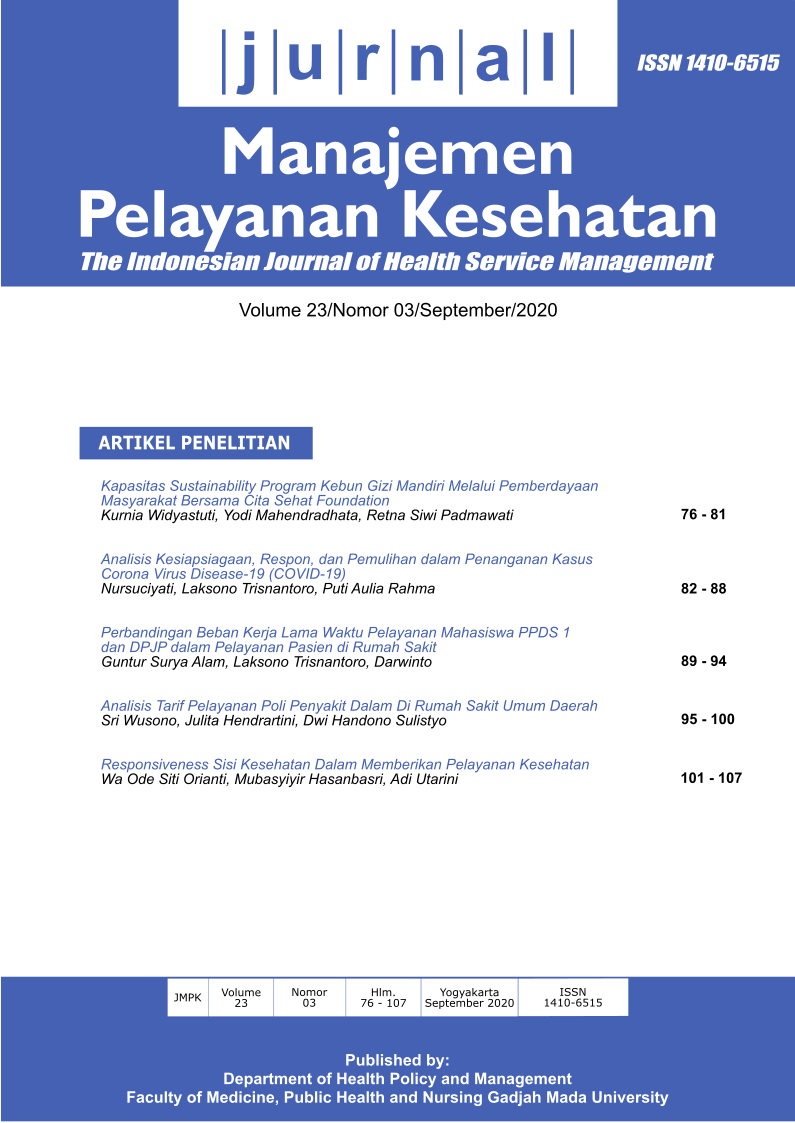KAPASITAS SUSTAINABILITY PROGRAM KEBUN GIZI MANDIRI MELALUI PEMBERDAYAAN MASYARAKAT BERSAMA CITA SEHAT FOUNDATION
CAPACITY OF SUSTAINABILITY PROGRAM FOR THE INDEPENDENT NUTRITION THROUGH COMMUNITY EMPOWERMENT WITH A CITA SEHAT FOUNDATION
Abstract
Background: The success of health programs to provide long-term benefits remains a challenge. Similarly, the study of sustainability capacity in health programs in Indonesia is still limited. Cita Sehat Foundation strives to support SDG achievement by ensuring that
the program has sustainable capacity so that it can run and be beneficial in the long periods. One of the programs delivered by the foundation is the implementation of Kebun Gizi Mandiri in Bantul,
Yogyakarta, for five years with and provide benefits and pride through several awards.
Objective: The aim of the research is to assess the sustainability capacity of Kebun Gizi Mandiri.
Methods: This research uses mixed-methods approach with convergent parallel strategy, where qualitative and quantitative data are collected, analyzed separately, and then compared to see the findings. Quantitative data was obtained from PSAT (Program Sustainability Assessment Tool). Qualitative data were obtained through in depth-interviews and focus group discussions from selected informants involving beneficiaries, program managers and development program NGOs with maximum total variation sampling.
Results: The sustainability of the program is well supported by the availability of support from the cadre team as the main manager, community and local stakeholders. The availability of information and involvement of cross- stakeholder support the sustainability of program. Strengthening cadre team capacity, innovation in program development, availability of evaluation forms capable of recording program progress and becoming the basis for improvement, as well as availability of allocations from various funding sources to ensure program sustainability are components of sustainability capacity that still needs improvement.
Conclusion: There are several domains of sustainability capacity that still need improvement. Therefore, the formulation of a sustainability action plan can be undertaken to follow-up the result based on a sustainability domain review that still needs special attention for improvement.
Copyright (c) 2020 Kurnia Widyastuti, Yodi Mahendradhata, Retna Siwi Padmawati

This work is licensed under a Creative Commons Attribution-NonCommercial-ShareAlike 4.0 International License.




